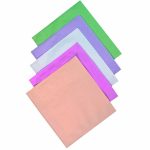As pet owners, the health of your canine companion is undoubtedly of utmost importance to you. When your lovable pooch is diagnosed with a liver disease, it can be hard to bear. However, there are steps you can take to support their wellbeing, one of the most crucial being their diet. Let’s delve into how you can prepare the best homemade diet for a dog with liver disease.
Understanding the Importance of a Proper Diet for Dogs with Liver Disease
Before we explore the recipe instructions, it’s crucial to understand why diet plays such a significant role in managing liver disease in dogs. The liver is a crucial organ, responsible for detoxifying the body, protein synthesis, and producing biochemicals necessary for digestion. When a dog has liver disease, these functions could be compromised, affecting the dog’s overall health.
Also read : How to Implement Effective Recall Training in Large Dog Breeds?
A carefully planned diet can work wonders in supporting your dog’s liver. It helps to reduce the workload of the liver, aids in cell regeneration, and counters the potential malnourishment that dogs with liver disease might face. The goal is to provide a balanced diet with easily digestible proteins, controlled amounts of high-quality fats, low sodium, and high moisture content.
The Role of Protein in a Dog’s Diet
Providing the right amount and type of protein is crucial for dogs with liver disease. The liver plays an integral part in processing protein, hence providing the correct quantity of high-quality protein can help maintain your dog’s muscle mass without overworking the liver.
In parallel : What’s the Best Way to Create a Sensory Garden for Dogs?
Generally, the protein source should be highly digestible and contain essential amino acids. Some excellent sources of such proteins include eggs, cottage cheese, and fish. While these are good protein sources, remember to control the quantity. Providing too much protein can result in harmful ammonia accumulation, a by-product of protein metabolism that the liver should filter out.
Choosing the Best Fats for a Dog’s Diet
Fat is an important part of your dog’s diet, serving as the primary source of energy. However, when dealing with liver disease, you need to be careful with the type and amount of fat you include in their diet.
Dogs with liver disease often have a hard time digesting and metabolizing fat. That said, a low-fat diet is recommended for these dogs. However, it’s crucial not to eliminate fat entirely from the diet as it’s necessary for absorbing vitamins and providing energy.
Consider feeding your dogs good quality fats that are easier on the liver like medium-chain triglycerides (MCTs) found in coconut oil. Also, Omega-3 fatty acids found in fish oil can help reduce inflammation and aid in liver function.
What Foods to Avoid in a Dog’s Diet
While it’s essential to know what to feed your dog, it’s equally important to know what you should avoid. Certain foods can exacerbate the condition of dogs with liver disease.
Avoid food with high sodium content as it can result in fluid accumulation in the abdomen, a condition known as ascites. Foods with copper should also be limited as dogs with liver disease struggle to excrete this mineral, leading to its accumulation and causing further liver damage.
A Sample Homemade Recipe for a Dog with Liver Disease
Now that we’ve discussed the dietary needs, let’s talk about a sample recipe that you can prepare at home for your dog with liver disease.
This recipe includes a blend of necessary nutrients that can help support your dog’s liver. Remember, before you switch your dog’s diet, it’s best to consult with a veterinarian or a pet nutritionist to ensure it meets your dog’s specific needs.
Ingredients:
- 1/2 cup of cooked white fish
- 1/2 cup of cooked pumpkin
- 1/4 cup of cottage cheese
- A small amount of coconut oil
- A dog-friendly multivitamin
Instructions:
- Cook the white fish thoroughly until it’s easily flaked with a fork.
- Cook the pumpkin until it’s soft and easily mashed.
- Combine the fish, pumpkin, and cottage cheese in a bowl.
- Mix in a small amount of coconut oil for the fat content.
- Once the mixture is cooled, add in the multivitamin.
- Serve the food at room temperature.
This recipe provides high-quality protein from the fish and cottage cheese, digestible fiber from the pumpkin, necessary fats from the coconut oil, and necessary vitamins and minerals from the multivitamin.
Remember, every dog is unique, and so are their dietary needs. While this homemade diet can greatly support your dog’s liver health, it’s crucial to get professional advice to tailor the diet to your dog’s specific needs.
Tailoring the Diet to Different Dog Breeds with Liver Disease
For different dog breeds, the exact dietary requirements may vary slightly depending on the breed’s size, weight, and metabolism. Apart from the breed, the stage of liver disease, the dog’s age, and overall health also come into play when tailoring a diet plan.
For instance, smaller breeds or those prone to obesity might require a lower calorie intake, even when dealing with liver disease. This means that the portions of protein, fats, and carbohydrates in their homemade dog food need to be adjusted accordingly.
Some breeds, such as the Bedlington Terrier, are genetically predisposed to copper storage disease, a type of liver disease. These dogs need a diet with ingredients that have low copper content.
Despite the differences, the overall approach to a liver-friendly diet remains the same across breeds. The diet should be rich in high-quality, easily digestible proteins, contain controlled amounts of good fats, and be low in sodium and copper.
Supplements can also be beneficial for dogs with liver disease. Milk thistle, for instance, has been found to support liver function and promote liver health. However, always consult with a pet nutritionist or a veterinarian before introducing any new supplement to your dog’s diet.
How Raw Diet Can Support Liver Function in Dogs
A raw diet is another approach that some pet owners find beneficial for their dogs with liver disease. A raw diet typically consists of uncooked meat, bones, fruits, and vegetables.
Proponents of a raw diet for dogs with liver disease argue that it can be beneficial for several reasons. Firstly, a raw diet is naturally low in sodium, which is beneficial for dogs with liver disease. Secondly, it can be a good source of high-quality, easily digestible protein which can support liver function.
However, it’s important to note that a raw diet might not be suitable for all dogs. Some may have difficulty digesting raw food or may be at risk of bacterial infection from raw meat. So, if you’re considering a raw diet, it’s always best to consult with a pet nutritionist or a veterinarian first.
Conclusion
When it comes to managing liver disease in dogs, diet plays a crucial role. The best dog food for a dog with liver disease is one that is low in sodium, high in moisture, and contains controlled amounts of high-quality proteins and fats.
Homemade dog food recipes, tailored to the specific needs of your dog’s breed and health condition, can be an excellent way to ensure your dog gets the necessary nutrients without straining its liver. Whether it’s a cooked diet or a raw diet, the focus should always be on quality, digestibility, and balance.
Just remember, each dog is unique and what works best for one might not work as well for another. Always consult with a veterinarian or a pet nutritionist before making any significant changes to your dog’s diet.
In the end, love, good care, and a liver-friendly diet can go a long way in supporting your dog’s liver health and overall wellbeing.






